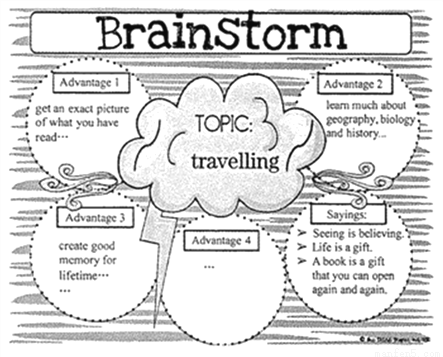题目内容
Travelers' tales

Every year, a magazine called Executive Travel organizes a competition to find the best airline of the year. Travelers from all over the world are invited to vote (投票) for the most punctual (准时的), the safest and the friendliest airline. The competition also invites them to tell their most horrible stories during their travels. Now let’s read some travelers’ tales of bad flying experiences.
One traveler shared his story which happened on a certain African airline. Even if some passengers had boarding cards, they couldn’t still get the seats. They complained and shouted at the airport. Finally, the flight attendants solved the problem by setting a funny rule. Those passengers who ran fastest around the plane twice could get the seats at last.
An overbooked flight that was going from Heathrow Airport to America gave another traveler a bit of a shock. Dressed only in trousers, a shirt and socks, the traveler had been allowed by the flight attendants to leave the aircraft to see if he could get a workmate aboard. But when he returned a few minutes later, he found the plane closed up and about to start moving --- with his shoes, wallet, passport and luggage on board. He knocked heavily on the door and then was allowed to get back inside.
Luggage is also a rich source of horror stories. There was the unlucky traveler who left Chicago where the temperature was minus (零下) 11 degrees centigrade. He was going to attend an important meeting in Dallas where the temperature was as high as 26.7 degrees centigrade. Unfortunately, his suitcase had gone to Los Angeles and wasn’t able to be sent to him before the meeting. So he had to__________________________________________________________.
1.Whom does Executive Travel invite to take part in the vote?
_________________________________________________________________
2.Why couldn’t some passengers with boarding cards still get the seats on the African airline?
_________________________________________________________________
3.In the second tale, why did the traveler leave the aircraft?
_________________________________________________________________
4.How did the traveler get back inside the aircraft later?
_________________________________________________________________
5.Where could the traveler possibly find his suitcase in the last paragraph?
_________________________________________________________________
6.What can be filled in the blank of the last sentence to make the tale complete (完整的) and reasonable (合理的)? (Please design two different endings)
_________________________________________________________________
1.It invites travelers from all over the world to take part in the vote./ Travelers from all over the world. 2.Because they ran most slowly / more slowly/ slowly around the plane./ Because they ... 名校课堂系列答案
名校课堂系列答案


